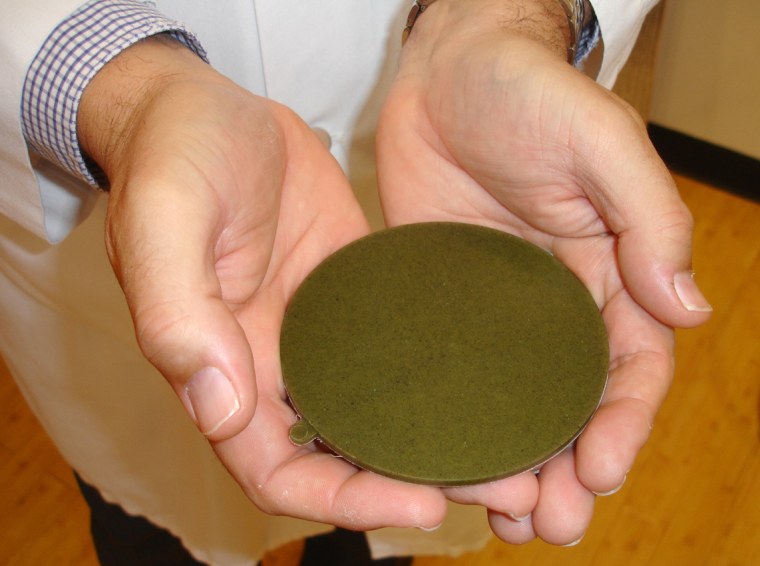Just imagine if all the plastic around us was made from algae. We'd have thoroughly green car parts, bottles, containers, keyboards. In several years, this could be real. A California-based company is currently putting their algae plastic prototype to the test.
A few years ago, Frederic Scheer, the founder and CEO of bioplastic maker Cereplast noticed that algae was getting buzz for its potential as a fuel source. About 18 months ago, he got the dry biomass leftover once the oil had been extracted and got to work.
Cereplast dries the biomass even further until it becomes a powder. For this stage of development, they're making a hybrid prototype. Organic ingredients and polypropylene or another traditional resin is mixed with between 35 and 50 percent algae powder using a proprietary process.
"It's exactly like a traditional material — fairly strong, presents strengths similar to the equivalent with starch-based materials," Scheer says.
He adds it also has a high heat tolerance. At first the algae plastic had a strong fishy smell, but the company has figured out how to get rid of that. Their goal is to bring the hybrid to the market by the end of the year, either November or December.
A version that's 100 percent algae — and entirely compostable — could be ready within three to five years. As it's developing the plastic, Cereplast is also determining how this plastic mix could be recycled effectively.
For me, 100 percent algae plastic would be a winner. Using algae wouldn't affect food crops the way other bioplastics made from corn and starches could if they were massively scaled up.
The process complements algae fuel production instead of competing with it. Scheer told me that artificially-grown high-yield algae crops can be harvested after two months. That's fast.
Even in small batches, the cost per pound of algae plastic is expected to beat out traditional plastics, too. Plus I'm a fan of materials that can be composted easily without any fine print. And hey, it already looks like grass.
